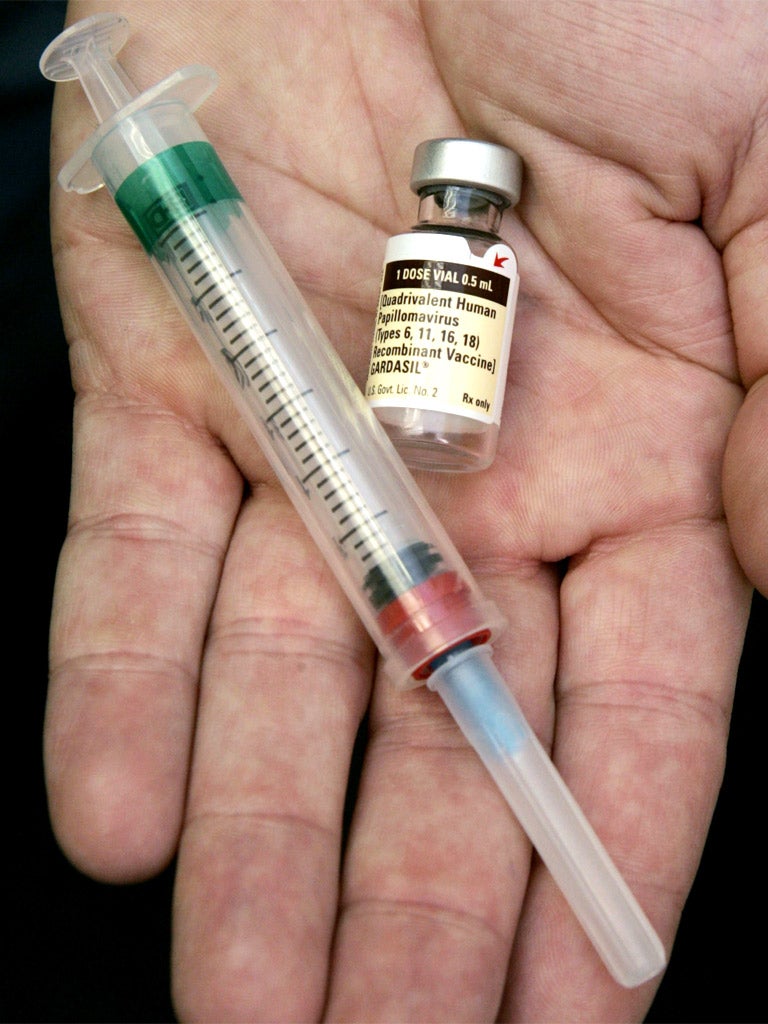Cervical cancer vaccine for girls must be given to gay men due to increase in anal cancer, says BMA
Doctors urge minister to take action over sexually transmitted virus that causes cancer in both men and women

The national programme to vaccinate young girls against a sexually transmitted virus which can cause cervical cancer should be extended to gay men, doctors say.
The British Medical Association has written to Anna Soubry, minister for Health, urging her to introduce HPV (human papilloma virus) vaccinations for young gay men attending sexual health clinics. They warn that there is an “alarming increase in anal cancer in gay men”. Anal cancer is rising at one to three per cent a year in most developed countries.
HPV vaccinations provide protection against the two commonest strains of the virus, which can cause cervical and anal cancer. From September last year, the existing vaccine Cervarix was replaced with Gardasil, which also protects against genital warts.
In the letter to Ms Soubry from the Dermatology and Venereology subgroup of the BMA, the specialists write: “We believe that a vaccination programme with Gardasil [for young gay men] would be of enormous benefit in reducing the incidence of anal warts, anal pre-cancer and cancer, as borne out in Australia.” HPV vaccination with Gardasil was introduced for girls in Australia in 2004 and is now to be extended to boys in the same age group (12 and 13). The authors of the BMA letter say they recognise that vaccinating all boys “is not economically viable in the UK at the moment”.
However, new figures on the rise in throat cancer linked to sexual activity could change that, they say. There are more than 1,000 cases of oropharyngeal cancer a year, which have doubled since the mid-1990s. Many specialists criticised the Department of Health’s decision to restrict HPV vaccination to girls when it was introduced in 2008. They argued that giving it to boys would reduce the prevalence of the infection in the population, offer added protection to girls, and prevent genital warts and anal cancer in both sexes.
Dr Colm O’Mahony, consultant in sexually transmitted diseases at the Countess of Chester Hospital and lead author of the BMA letter, said: “Australia has seen a phenomenal reduction in genital warts in a very short time... It would be best to give the vaccine to boys in the early teens, as for girls. But we recognise that is not cost effective at the moment. But we think if young gay men up to the age of 21 attending sexual health clinics are offered the vaccine the chances of the virus causing trouble will be very much reduced.”
Majority of MPs now support gay marriage
A majority of MPs have committed themselves to supporting same-sex marriages and now outnumber opponents of gay weddings in the Commons by a margin of almost three to one.
Some 330 MPs out of 650 have now publicly said they will vote in favour of the move.
Just 126 have said they will oppose it, while the views of the remaining 194 are not known.
The legislation paving the way to gay marriage is due to be published within weeks and could come before Parliament in the summer.
Join our commenting forum
Join thought-provoking conversations, follow other Independent readers and see their replies
Comments
Bookmark popover
Removed from bookmarks